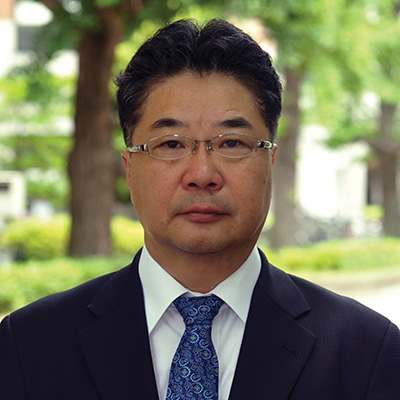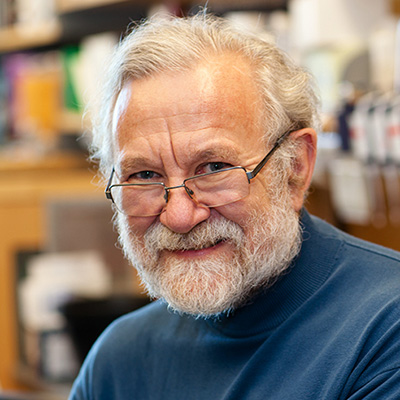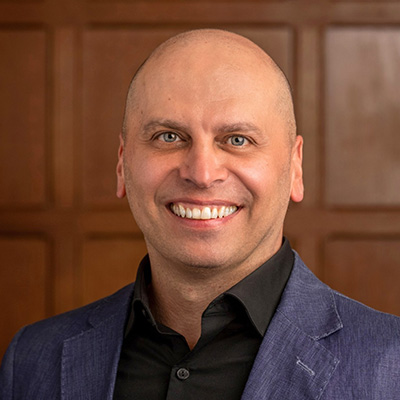Honors for De La Cruz, Mori and Walter
Mori and Walter win BBVA award
The BBVA Foundation, a charitable arm of the Spanish financial services company Banco Bilbao Vizcaya Argentaria, has awarded Kazutoshi Mori, Peter Walter and two other researchers the Frontiers of Knowledge Award in Biology and Biomedicine.


These four scientists unraveled the physiological mechanisms behind protein function, a fundamental finding to elucidate the origin of multiple diseases and develop new therapeutic strategies. Mori and Walter independently discovered the unfolded protein response, an intracellular quality-control system that detects misfolded proteins in the endoplasmic reticulum and signals the nucleus to carry out corrective measures.
Mori is a professor of biophysics at Kyoto University. His lab continues to study the biological and physiological importance of the unfolded protein response. Mori’s work provides important insights on how to treat protein folding disorders, diabetes, heart disease, atherosclerosis and cancer.
Mori’s previous awards include the Keio Medical Science Prize, the Momofuku Ando Prize, the Breakthrough Prize in Life Sciences, the Imperial Prize of the Japan Academy, the Albert Lasker Basic Medical Research Award and the Shaw Prize in Life Science and Medicine.
Walter is a professor of biochemistry and biophysics at the University of California, San Francisco. His lab identifies the machinery and mechanisms that ensure proper protein synthesis, folding and targeting as well as the pathways that allow organelles to communicate and regulate their abundance. They are particularly interested in how disruptions to the unfolded protein response lead to disease initiation and progression.
Walter’s awards include the Paul Ehrlich and Ludwig Darmstaedter Prize, the Shaw Prize in Life Science and Medicine, the Lasker Basic Medical Research Award, the Vilcek Prize in Biomedical Science and the Breakthrough Prize in Life Science.
The two other Frontiers of Knowledge prize recipients are Ulrich Hartl and Arthur Horwich. The nomination committee, in a BBVA press release, saluted the four awardees for their findings, which revealed “how cells control protein biogenesis and degradation, central not only to physiology but also disease pathogenesis and therapy.”
Each awardee will receive a 100,000-euro ($107,000) prize.
De La Cruz named honorary professor
Enrique M. De La Cruz has been named the William R. Kenan Jr. professor of molecular biophysics and biochemistry at Yale University.

Kenan (1872–1965) discovered calcium carbide and how to convert it to acetylene gas. This led directly to his professional career at Union Carbide, a producer of chemicals and polymers used in industrial and consumer products. The William R. Kenan Jr. Charitable Trust of New York supports scholar–teachers of distinction whose enthusiasm for learning, commitment to teaching and interest in students contributes to the undergraduate college community.
De La Cruz is a professor of molecular biophysics and biochemistry, and he also serves as the head of Branford College, one of Yale’s undergraduate residential colleges. His lab uses biology, chemistry, physics and engineering techniques to study molecular motor proteins and the cytoskeleton. He has made seminal contributions to biophysics including discovering the molecular mechanisms underlying actomyosin function, RNA helicase function and actin filament severing. He has authored more than 98 research publications in peer-reviewed journals, numerous review articles and commentaries and chapters in undergraduate textbooks.
De La Cruz is an associate editor for the Journal of Biological Chemistry and was a member of the American Society for Biochemistry and Molecular Biology’s inaugural class of fellows in 2021. He was elected as a fellow of the American Association for the Advancement of Science in 2022 and of the Connecticut Academy of Science in 2021.
Enjoy reading ASBMB Today?
Become a member to receive the print edition four times a year and the digital edition monthly.
Learn moreGet the latest from ASBMB Today
Enter your email address, and we’ll send you a weekly email with recent articles, interviews and more.
Latest in People
People highlights or most popular articles

The timekeepers of proteostasis
Learn about the cover of the winter 2026 ASBMB Today issue, illustrated by ASBMB member Megan Mitchem.

Defining JNKs: Targets for drug discovery
Roger Davis will receive the Bert and Natalie Vallee Award in Biomedical Science at the ASBMB Annual Meeting, March 7–10, just outside of Washington, D.C.

Building better tools to decipher the lipidome
Chemical engineer–turned–biophysicist Matthew Mitsche uses curiosity, coding and creativity to tackle lipid biology, uncovering PNPLA3’s role in fatty liver disease and advancing mass spectrometry tools for studying complex lipid systems.

Summer research spotlight
The 2025 Undergraduate Research Award recipients share results and insights from their lab experiences.

Pappu wins Provost Research Excellence Award
He was recognized by Washington University for his exemplary research on intrinsically disordered proteins.

In memoriam: Rodney E. Harrington
He helped clarify how chromatin’s physical properties and DNA structure shift during interactions with proteins that control gene expression and was an ASBMB member for 43 years.
